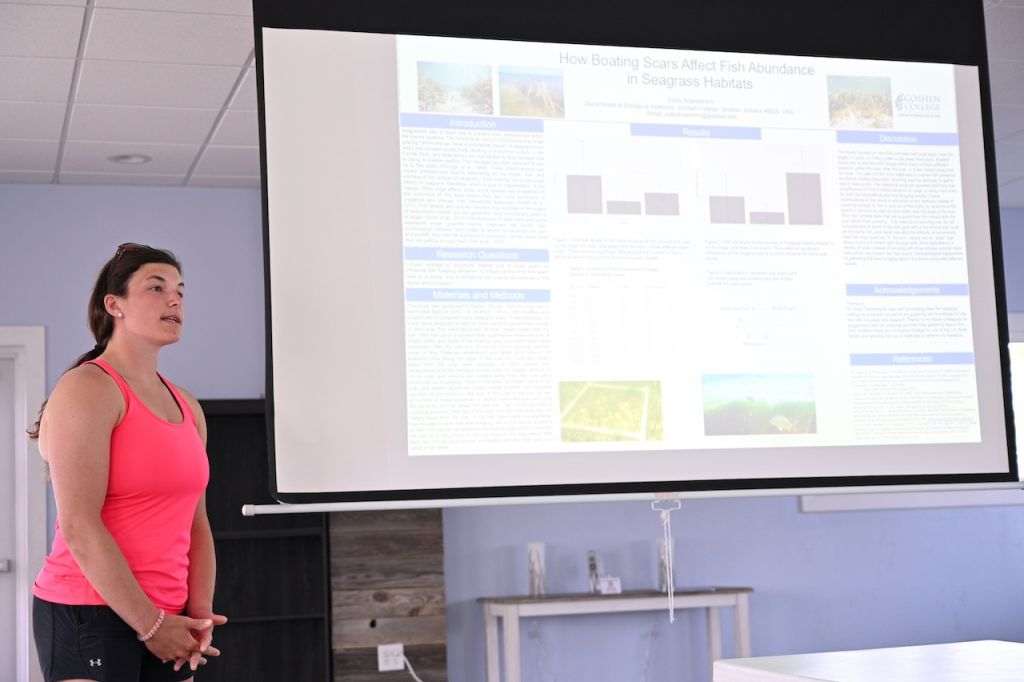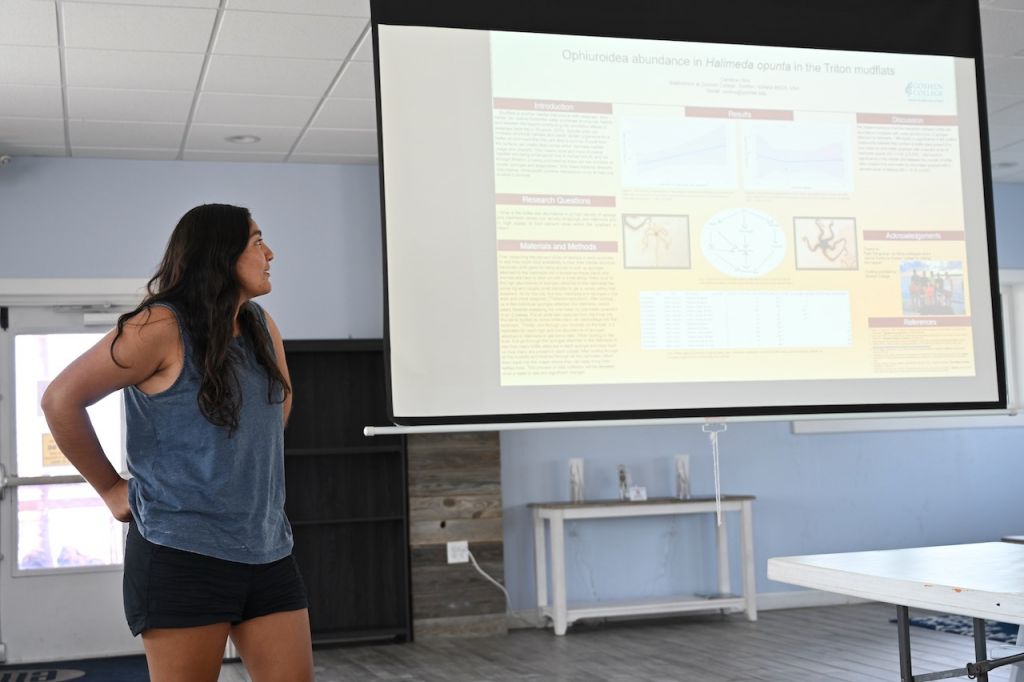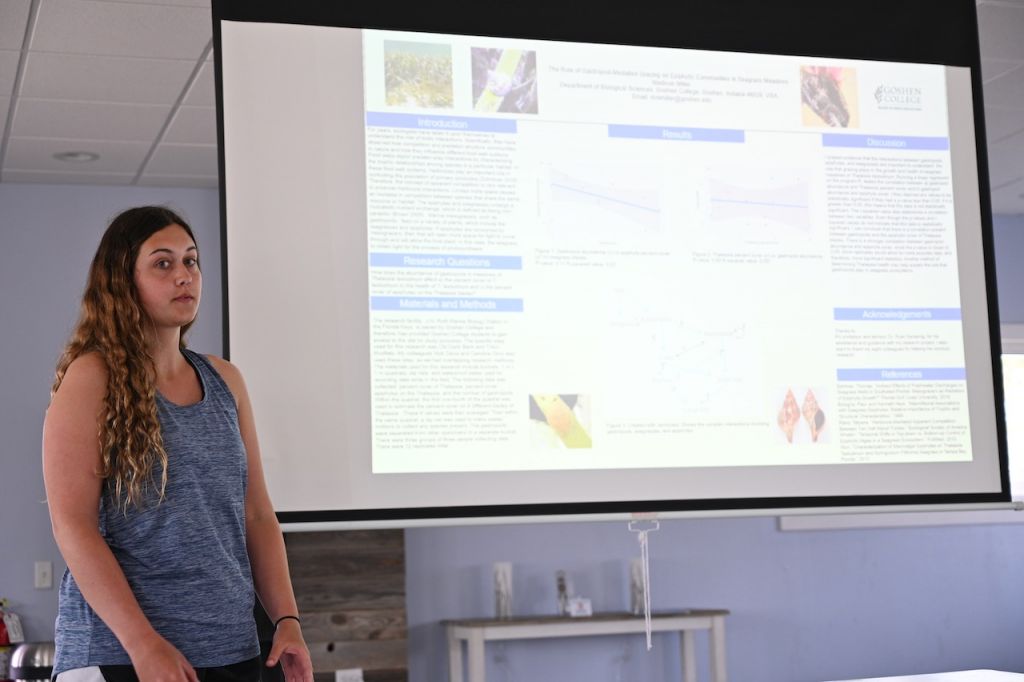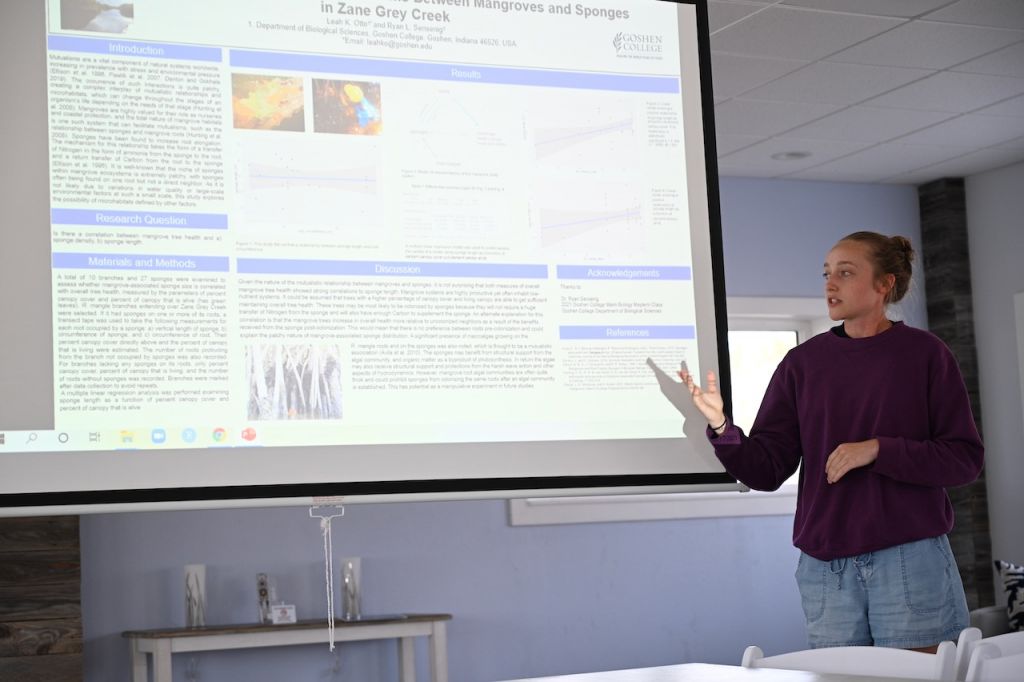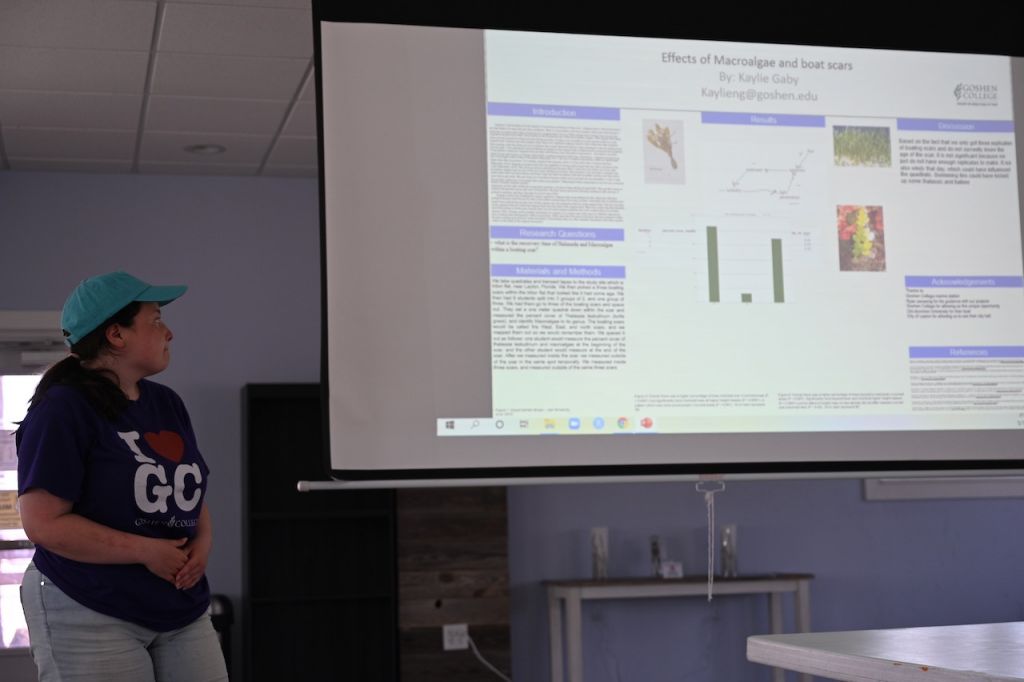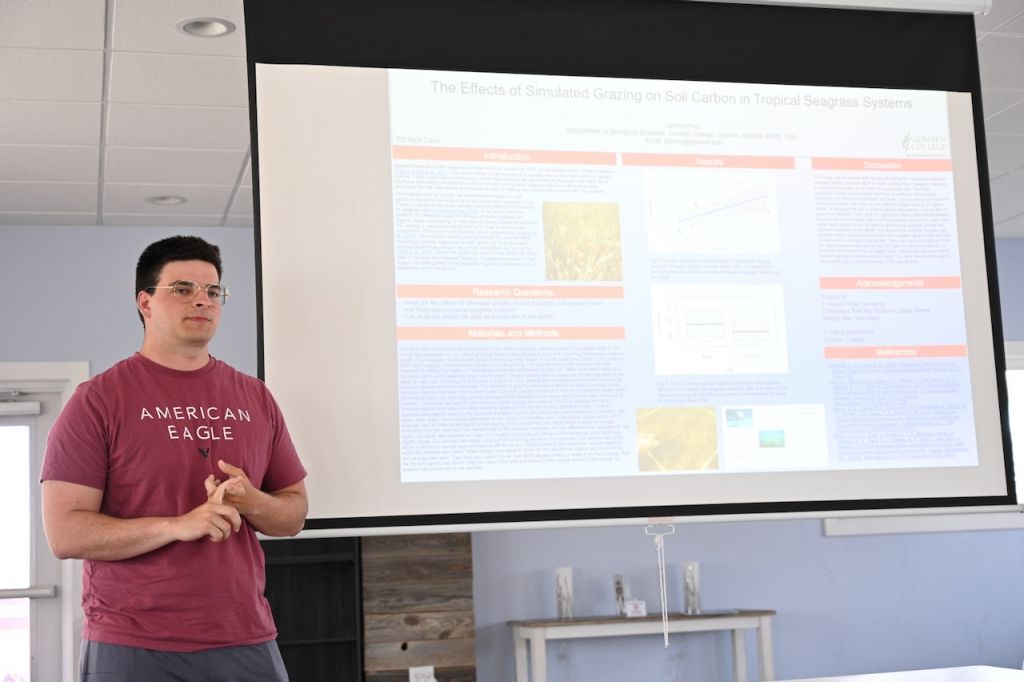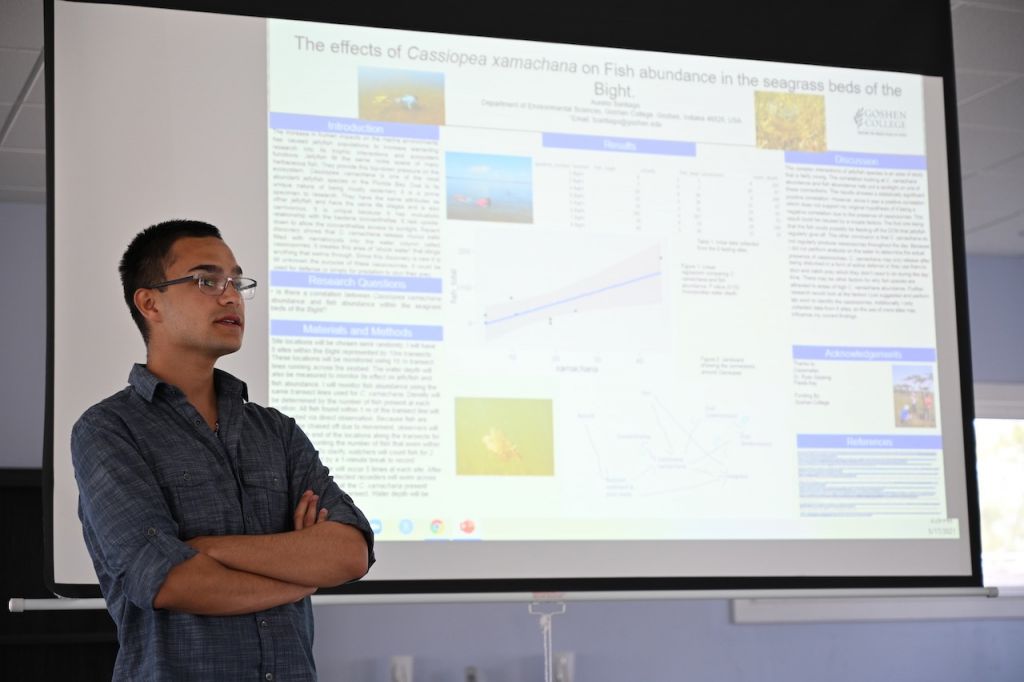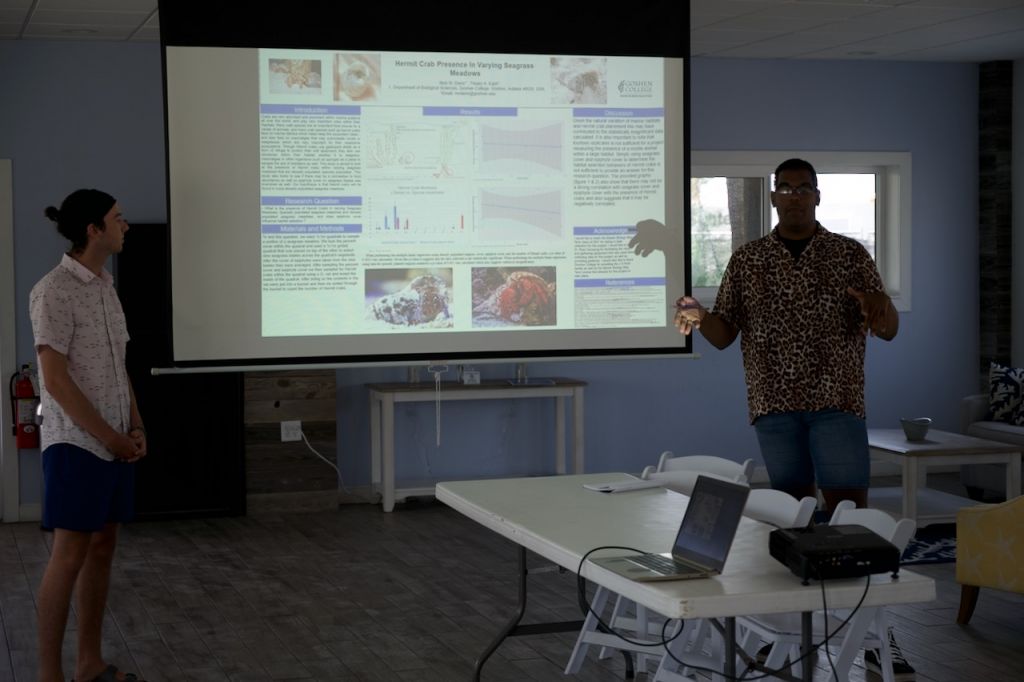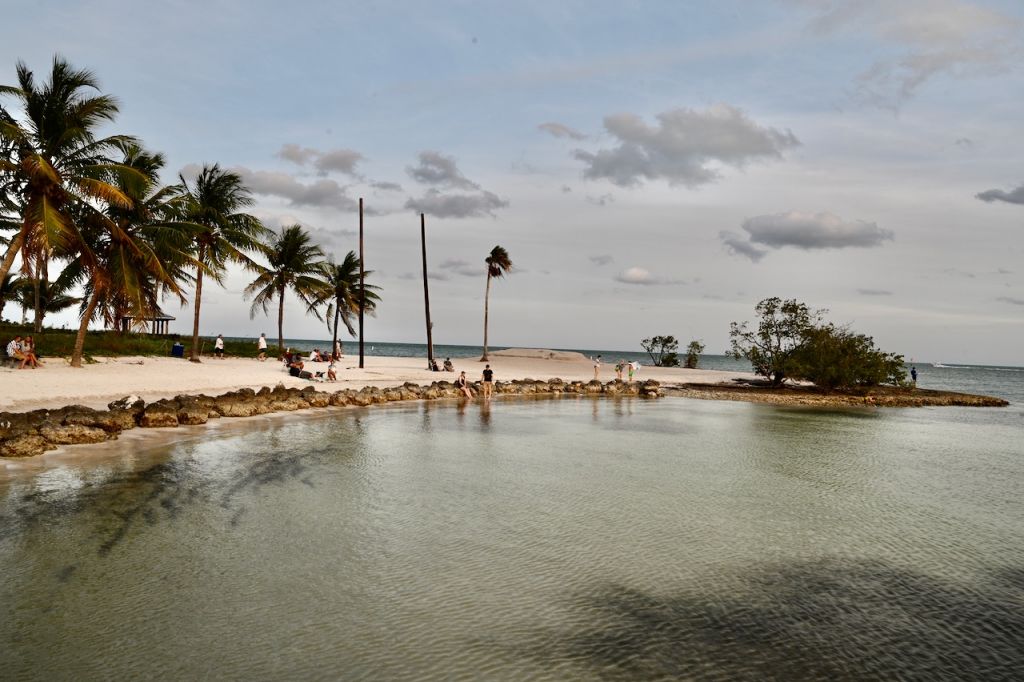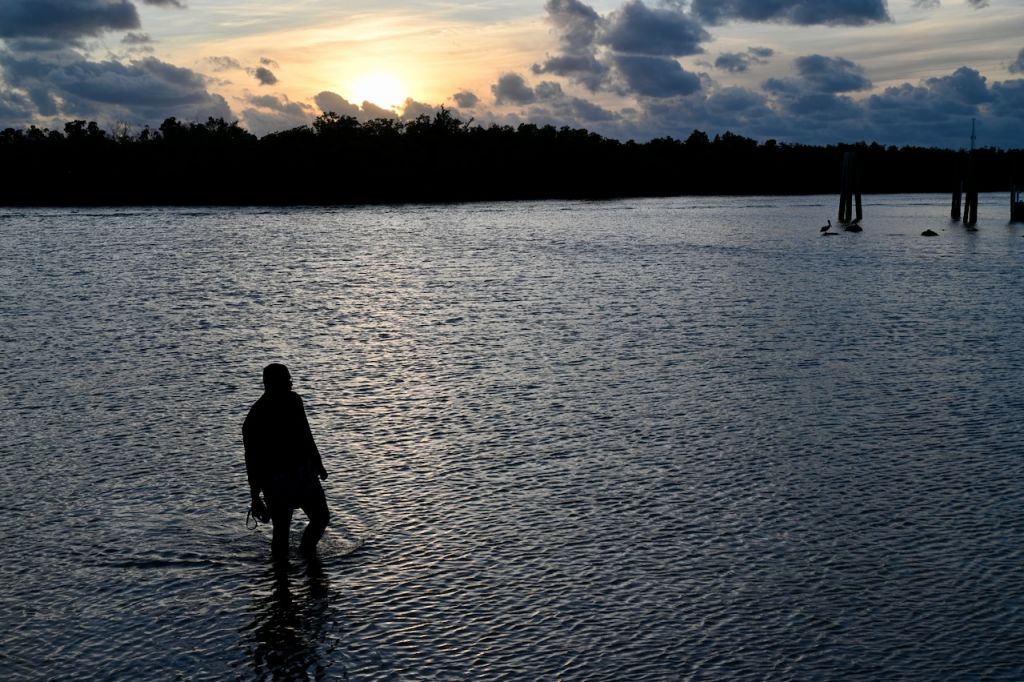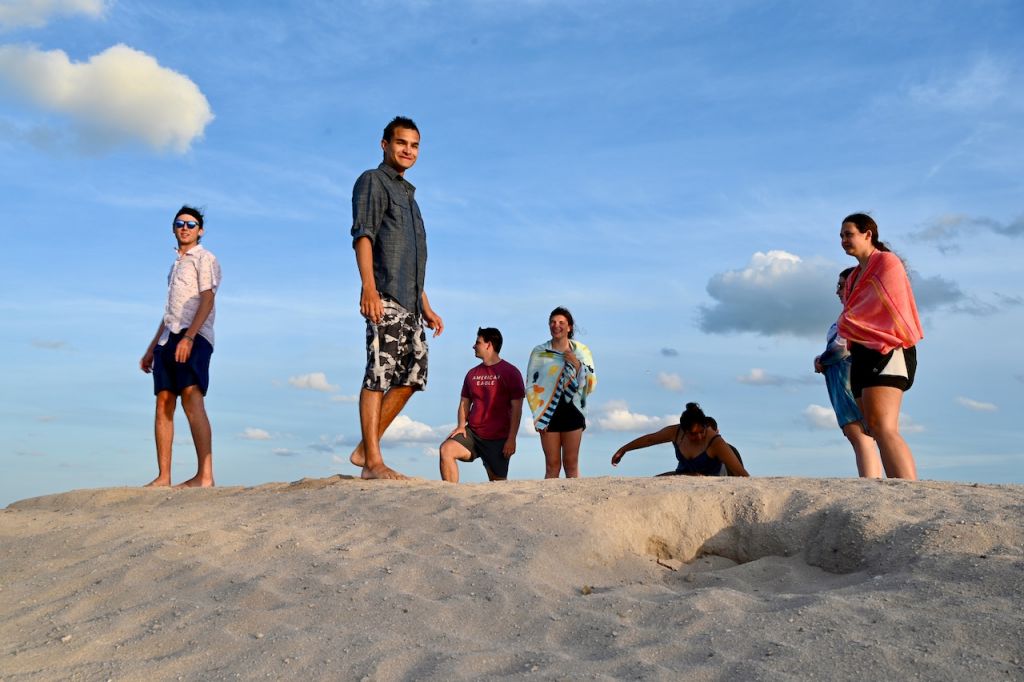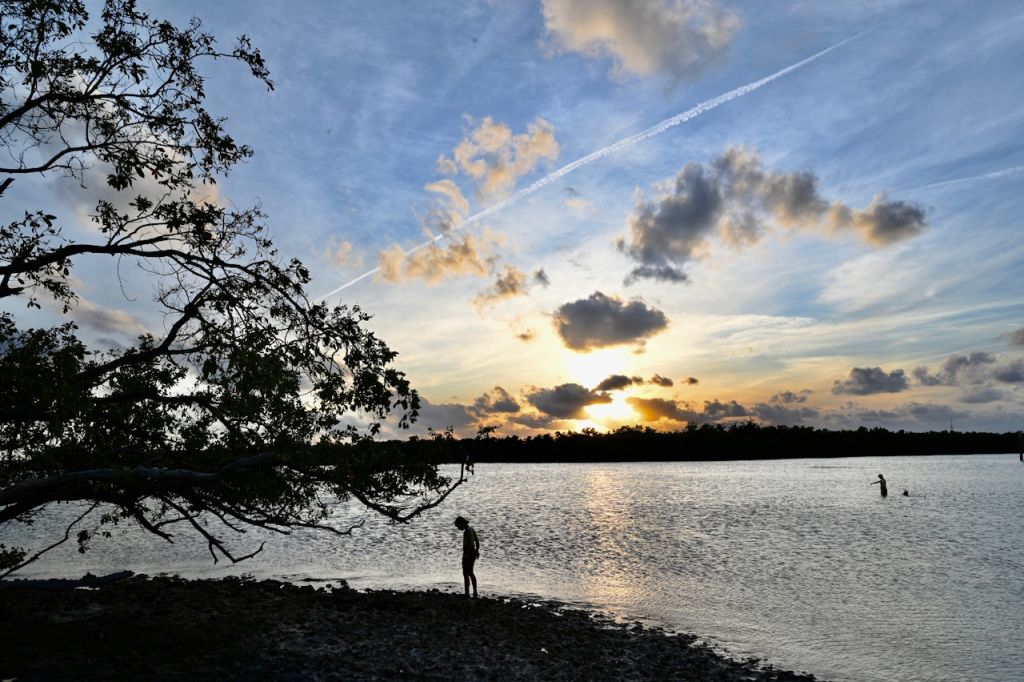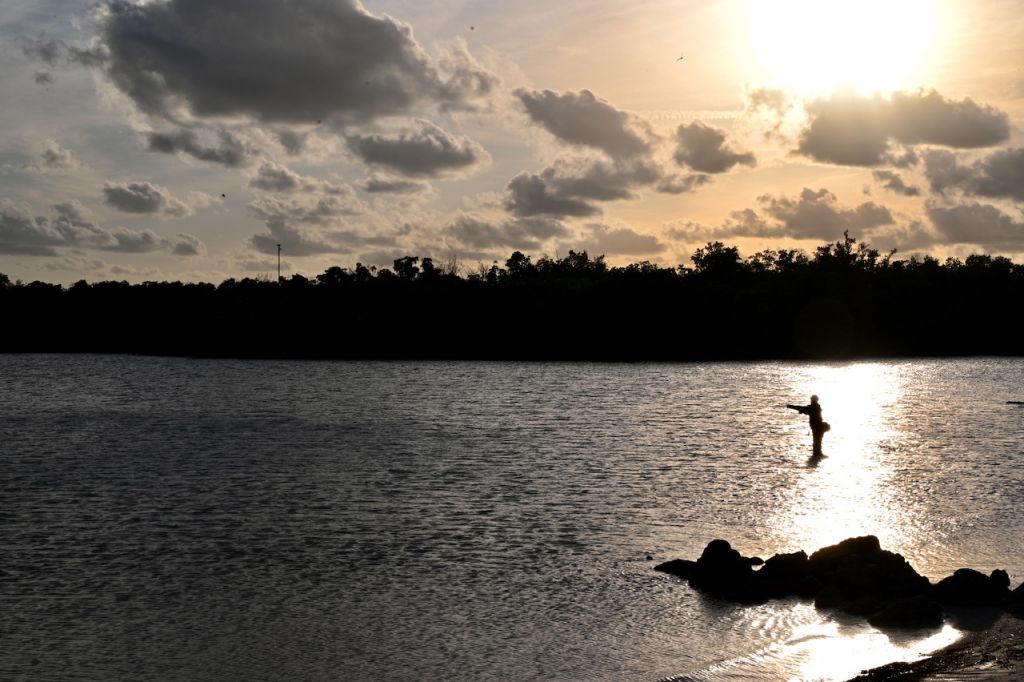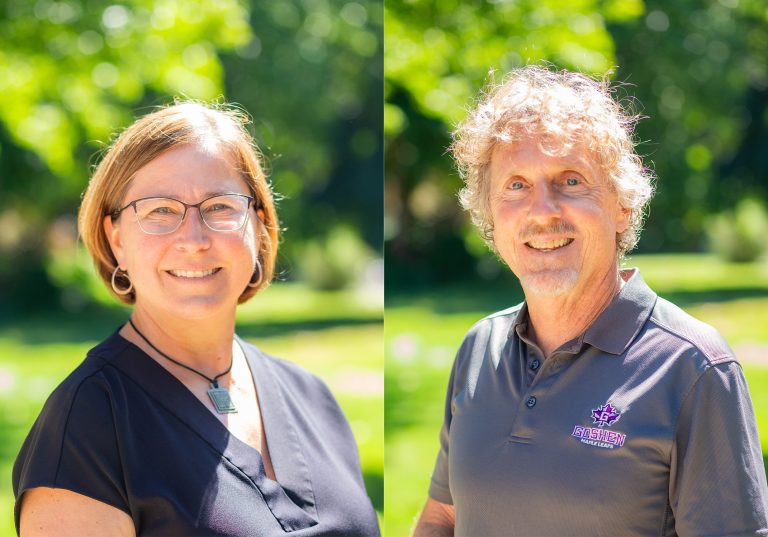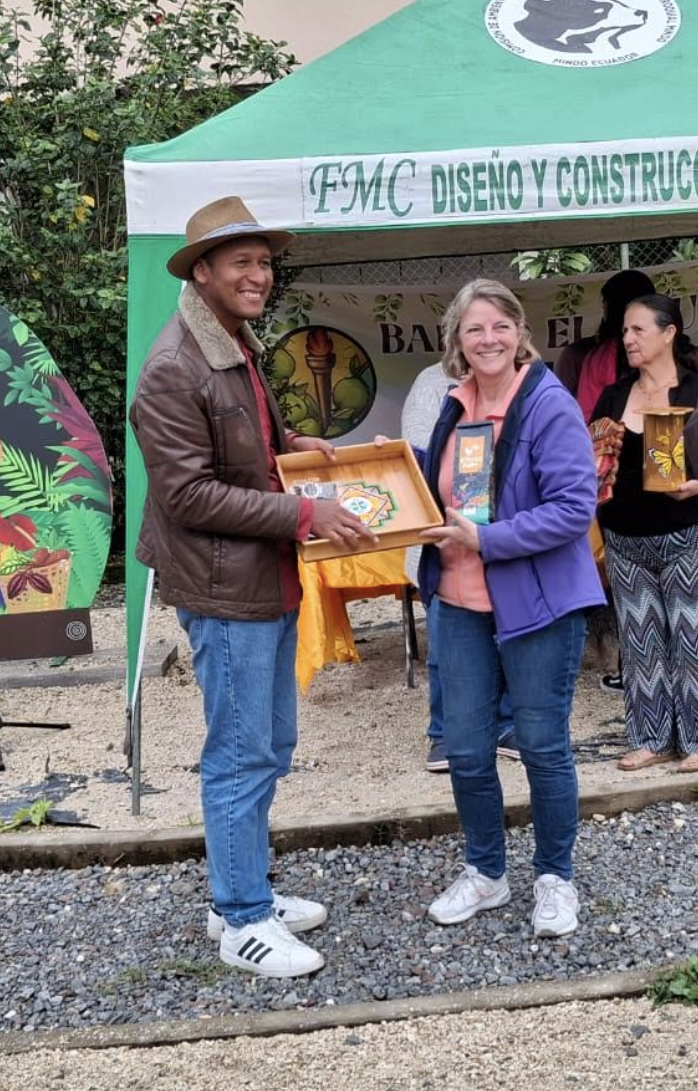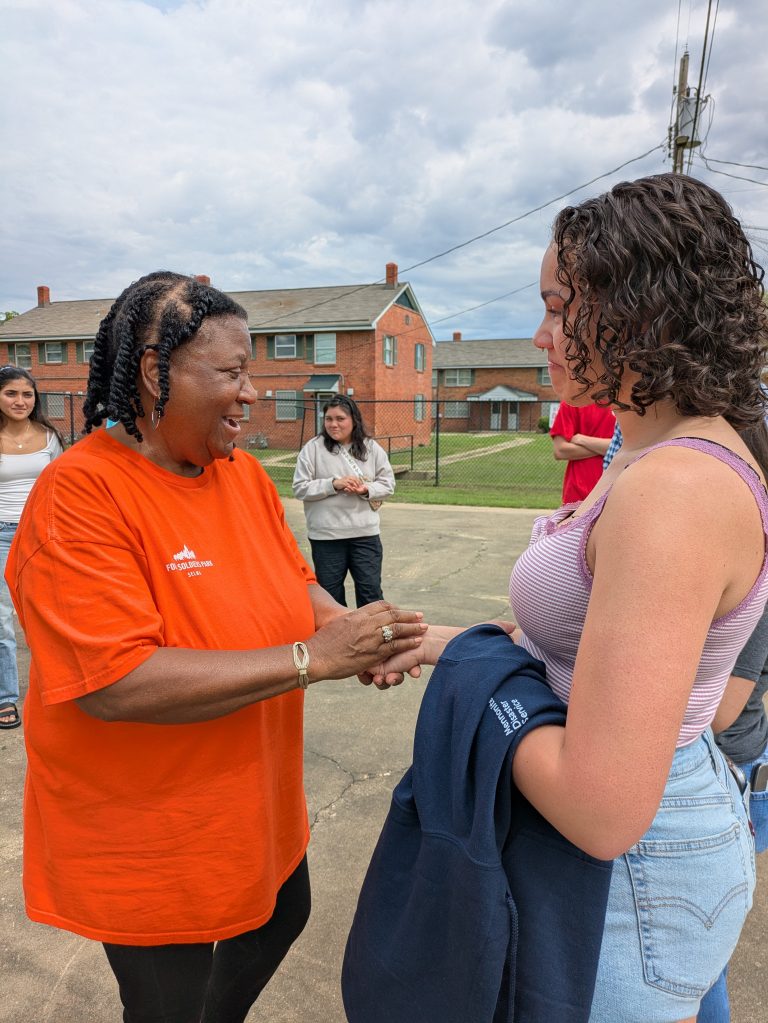Goshen College’s “SST for all” makes global education more accessible with flexible study options at home and abroad.

News
Presentations, Reflections & Beach Party!
May 17 2021
Monday May 17, 2021
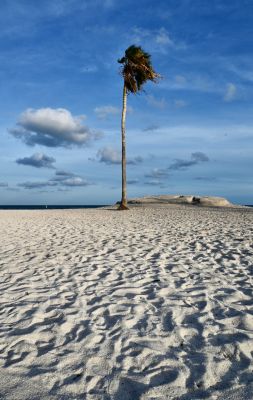
Today students presented preliminary analysis of their data collection to test their senior thesis protocols, which they will implement this coming fall during the Marine Biology Semester. We celebrated with a trip to the beach and a final pizza dinner watching the sunset.
Here are a few final reflections from the research team! Thanks for joining us in this adventure – we will leave the Keys for home in the morning.
– Ryan Sensenig, Professor of Biology; JN Roth Marine Biology Station Director
Coming from a liberal college in Goshen, I have heard time and time again how climate change is affecting the environment and how we are running out of time to change our behavior. But in Indiana we don’t see such drastic changes as other locations around the globe, which is always pointed out. It wasn’t until our coral reef trip that this really sunk in. Just four short years ago I visited a different reef in the Keys, and the difference from our trip last week was far too noticeable for comfort. The reef looked very brown and there was a surprising lack of sea fans, gorgonians, and other species that wave around in the water. While it was disheartening to see such negative effects over a short period of time, it has renewed my passion for doing my part in relation to climate change and finding creative ways to save and restore both marine and terrestrial systems. – Leah Otto
A biological idea that stuck with me the most is the idea of large organisms such as the Ocean Sunfish to be classified as plankton and the overall idea of what Plankton actually are. A highlight for me was going to the reef and seeing the interactions between the fish there. Going to the reef displayed how reefs are a foundational species for many organisms as they provide refuge and create structure within the habitat. – Nick Davis
I did not know how many different species can live in one habitat such as in a sargassum habitat. I liked the experience that this class gave me. – Carolina Olivo
My Marine Biology experience was definitely an experience that will stick with me for a very very long time. Getting to learn about all the different interactions and species that are here and then getting to go out and see those interactions and species is absolutely incredible. Being from the midwest I just never imagined that nature could be this complex and beautiful. – Theary Eash
One thing that struck me as interesting is how many many creatures are reliant on the openness of the ocean system. I didn’t think about how with coral they release their offspring and hope it lands somewhere it can grow. Or the lobster here in Florida the children and/or parents of the spiny lobster in Cuba. It is cool to see that even though things are geographically far apart they still interact with each other. – Trey Santiago
A biological idea that struck me the most was that 75 percent of all ocean fisheries are fully exploited or overexploited. That number seems so big to me. My marine biology experience is something that I will never forget. I was amazed at how many systems are interconnected and how disturbances that happen at the hardbottom sites, directly affects the productivity of the reef. – Kaylie Gaby
The biological idea that struck me the most during my experience in marine biology is the loss of sponges. I feel like it is not talked about enough. Many people do not understand the importance of sponges in marine systems. Much more of the population is aware of the importance of coral reefs. In a way, sponges are very similar, as they provide a structural habitat for a variety of marine creatures, such as spiny lobsters or juvenile reef fish. They are also able to constantly filter liters and liters of water, which amazes me. Climate change doesn’t just harm one habitat, it harms the whole system. The ocean is worth protecting for the diversity of creatures and for the sake of our future generations. – Madison Miller
My experience in this marine biology course was great; I had the opportunity to explore the different systems that are all key factors to the marine system including the mangroves, seagrass beds, mudflats, hardbottom, and coral reef systems. These are all areas of the ocean that serve important functions that are needed for marine life to thrive. Many are concerned about the dieoff of coral reef systems, which they are still important, but the other systems like seagrass beds, mangroves, and sponge loss are also key habitats for juvenile fish, arthropods, crustaceans and many other marine creatures we may not always see. – Emily Brandeberry
One biological idea that hit me the most during this term is that of the complexity of something that seems so simple like a seagrass bed. In the spring before coming down to the keys, we each designed a research project around how we thought the system worked. Each of us had our own view of the seagrass habitat and mine was that of some patchy grass with a few fish swimming around. Needless to say my view of the system was very very wrong and I feel wiser for it. There is so much complexity within just a single m2 of seagrass beds that a scientist would need several lifetimes to fully understand the system they see in front of them. – Jarrod Price
